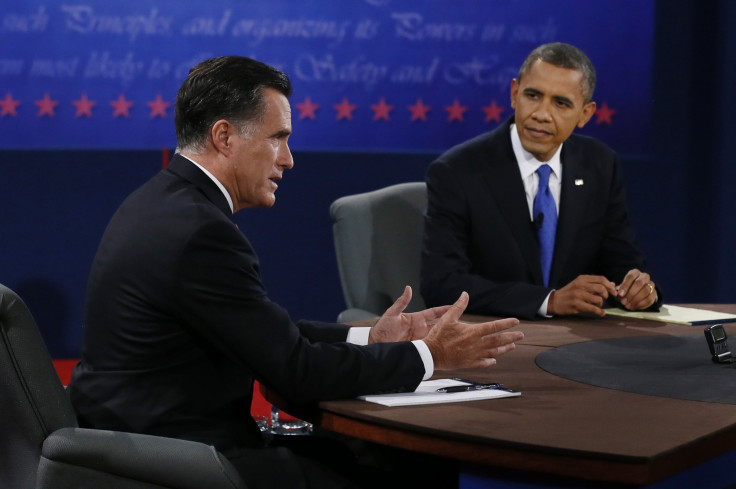How Likely To Change Are American Attitudes On Foreign Policy? Why The Third Presidential Debate Might Not Have Mattered

The final presidential debate on Monday night was touted as one of the most important events of the political season. When President Barack Obama and Republican challenger Mitt Romney sat behind the table they were in a dead heat for American’s votes. The question over who won the debate in terms of foreign policy, however, could remain unsolved until Election Day.
Political pundits seemed to almost write off Mitt Romney before he dominated the first presidential debate against a lackadaisical Obama on Oct. 3, something the president later admitted on more than one occasion. Since then Obama and his staff have been trying to quell Romney’s rise in the polls; evidence enough was his performance during the second debate last Tuesday.
The New York Times reported Monday that Obama was leading Romney by 31 electoral votes out of 538, according to the latest polls. In what has been a polarizing and attack-based election season as any in recent memory, though, there are still undecided voters. A recent poll from the Washington Post revealed that as many as 9 percent of voters nationwide could still change their mind.
Slate reported that the swing states are even tighter, with 8 percent of Floridians admitting they haven’t made up their mind. In Colorado, Virginia and Wisconsin, fewer than 5 percent reported being unsure.
How those numbers will change in the two weeks following the final meeting between Romney and Obama is impossible to predict because of the opposing beliefs that permeate through America.
If Americans were paying attention to the political messages coming from both ends of the spectrum they probably weren’t surprised during Monday night’s faceoff on foreign policy. A poll released Monday from Quinnipiac University in conjunction with CBS News showed that, in the crucial swing state of Ohio, Obama was 7 percent more favored than Romney to handle foreign policy issues.
But those numbers don’t necessarily reflect how the rest of the electorate thinks America should handle itself overseas, particularly in the Middle East. The Pew Research Center released a poll that asked the same question Ohioans answered, only this time Obama led Romney by four points. Other issues were similarly split, with 49 percent of Americans in favor of getting tougher on China and 50 percent in favor of taking a firm stand against Iran.
Obama’s repeated attempts throughout the campaign debate to portray Romney as the heir of overly aggressive Bush foreign policies seems to have had no effect. Despite the overwhelming disapproval of President George W. Bush’s wars in Iraq and Afghanistan, 56 percent of voters told the Pew Research Center that it was important to take a firm stand on Iran’s nuclear program while only 35 percent reported being in favor of avoiding military conflict.
“Barack Obama, wartime president though he is, continues to see the world still in nuanced gray – the color of engagement and diplomacy,” Aaron David Miller, a Middle East analyst who served both Republicans and Democrats, told Bloomberg News.
“Mitt Romney, should he be elected, will start off seeing the world more in black and white – the color of muscular rhetoric, American exceptionalism and unapologetic nationalism.”
Even after the debate, those starkly different ideologies seem to reflect the American psyche.
© Copyright IBTimes 2024. All rights reserved.





















